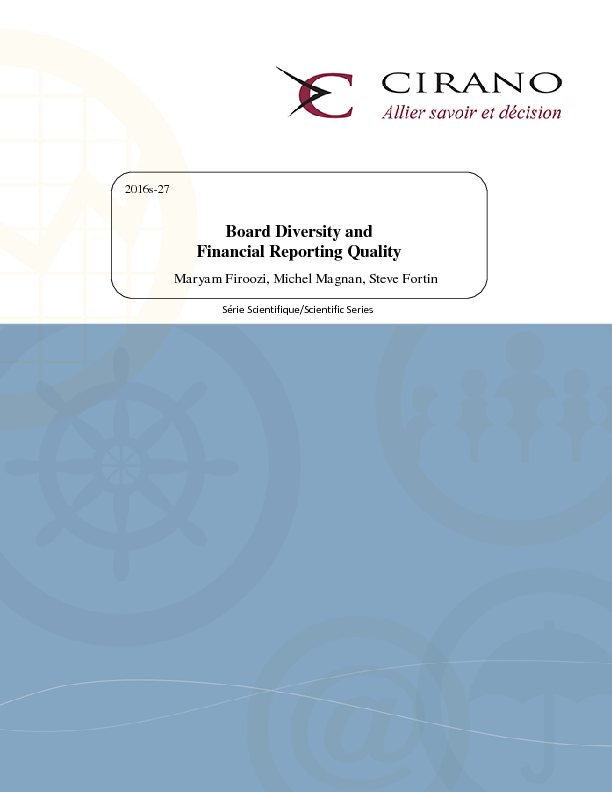Board Diversity and Financial Reporting Quality
The
diversity of boards of directors (or lack of thereof) is currently attracting
significant attention from regulators and institutional investors all over the
world, with some jurisdictions either imposing conditions (e.g., quotas on
gender diversity) or requesting disclosure of measures taken to enhance diversity.
Diversity is seen as providing boards with access to a wider pool of
competencies, experiences and perspectives, which should be beneficial to board
effectiveness. In this study, we investigate how a firm’s financial reporting
quality relates to two dimensions of board diversity: geography and gender.
Geographical diversity reflects directors’ geographical location relative to
corporate headquarters. Our results show that financial reporting quality, as
measured by the level of abnormal accruals and restatements, is lower for firms
with independent directors who are geographically spread out than for firms
with less geographically diverse boards. In addition, firms with more
geographic diversified audit committee members have lower financial reporting
quality. Moreover, we do not find any significant relationship between board
gender diversity and financial reporting quality. Our findings hold after
controlling for endogeneity and also alternate explanations. These findings
suggest that firm-specific effects from board diversity do differ and are
conditional upon the facet of the diversity being considered. Our results also
indicate that regulators may need to take a more comprehensive approach if they
push for board diversity.
[ - ]




